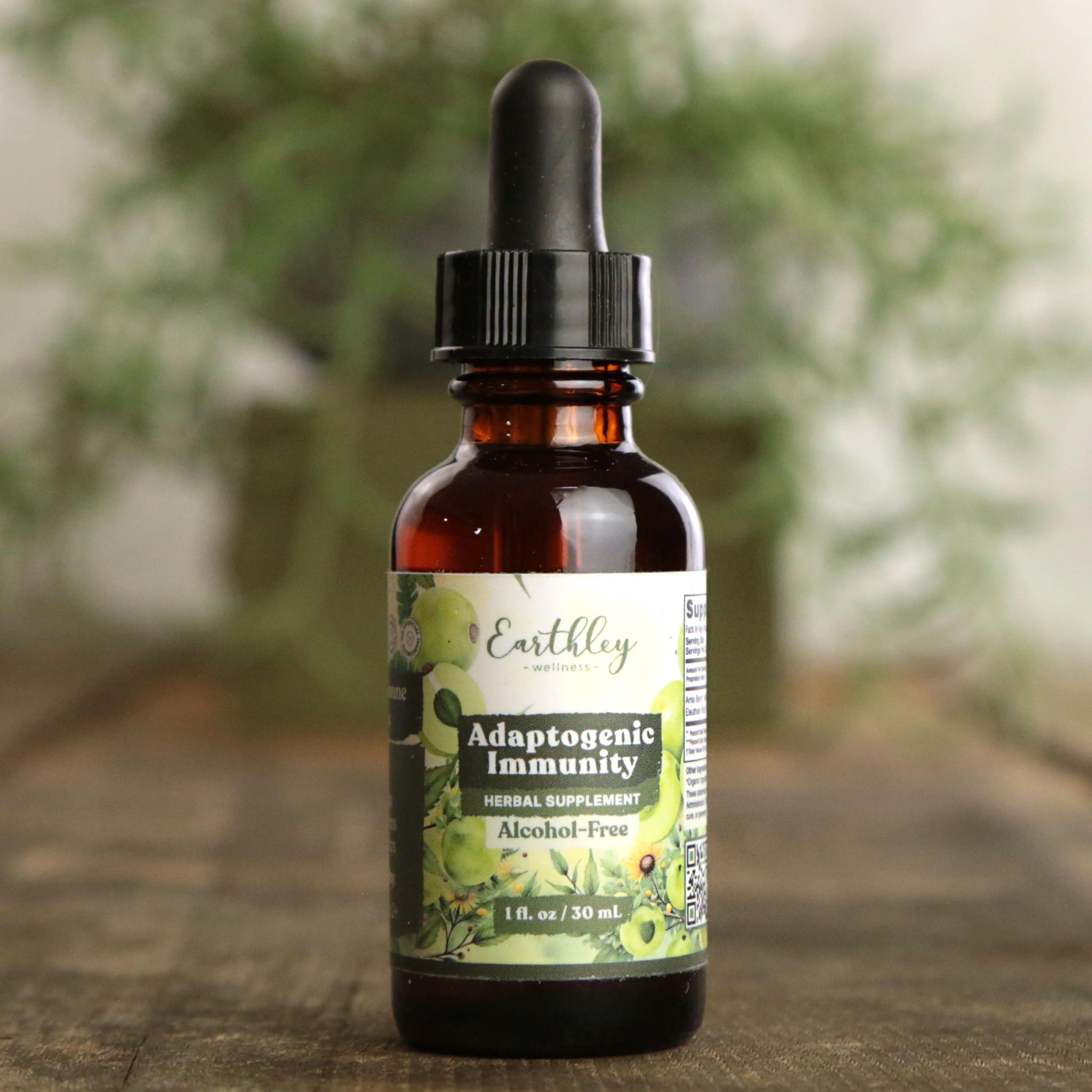How Stress Affects Your Digestion

Have you ever noticed your stomach tighten when you’re stressed, or felt your appetite vanish before a big event? Maybe you’ve experienced your digestion slowing, or your gut feels “off” for days after a particularly rough week.
That’s because your gut and your brain are in constant conversation. When life gets stressful, your nervous system shifts into “fight or flight” mode, pulling energy away from digestion and sending it toward survival. Over time, this can lead to sluggish digestion, heartburn, constipation, nutrient deficiencies, and even changes to your gut bacteria.
In today’s world, chronic stress isn’t the exception; it’s the norm. Whether it’s juggling work and family, exposure to environmental toxins, or too much caffeine and too little sleep, our digestive systems are bearing the brunt of it. Understanding how stress impacts your gut is the first step toward restoring balance.
Let’s explore what happens with our digestion during periods of stress, how the gut-brain connection works, and gentle, natural ways to support both your mind and your microbiome so they can work in harmony again.
Sympathetic Vs Parasympathetic
The sympathetic and parasympathetic nervous systems are branches of the autonomic nervous system, which regulates all of our involuntary body functions—heart rate, blood pressure, breathing, digestion, and body temperature. Our sympathetic nervous system is our fight or flight system, and our parasympathetic nervous system is our rest and digest system. The two work together to keep our bodies in homeostasis.
While we may not be running from mountain lions or bears on a regular basis, there are still a lot of things in our lives that flip us into sympathetic dominance (1). These triggers can be anything from work deadlines, exams, public speaking, loud noises, intense physical exercise, arguments with a friend or family member, excitement, caffeine, chronic stress, or lack of sleep (2)(3).
This sets our body in a state that increases our heart rate, dilates our airways and pupils, redirects blood flow to our extremities and heart, and stimulates the adrenal glands to pump our adrenaline. The diversion of blood flow causes our body to inhibit our digestive functions.
Gut motility decreases, suppressing peristalsis in our intestines. Digestive secretions that contribute to digestive regulation are minimal. Sphincters constrict, slowing the passage of food and potentially causing cramping or spasms. The release of bile goes down. Insulin secretion is halted. Saliva becomes thick as proteins and enzymes fill up the reduced fluid volume. Finally, our gut immunity is altered (4).
If our digestive system is left in this state for too long, we increase our risk of developing leaky gut and varying forms of IBD (IBS-C, -D, -M, -U, Crohn’s, or Ulcerative Colitis) (5)(6).
Sounds really bad, doesn’t it? Not to worry, though, all of these things are reversible. It’s just a matter of getting out of fight or flight mode and back into rest and digest mode. Sometimes, that is easier said than done.
Flipping out of sympathetic dominance and into parasympathetic dominance takes some time(7). Whether that change happens in minutes to hours depends on the tone of the vagus nerve and the intensity and duration of the stress.
The vagus nerve is the longest cranial nerve in the body and serves as the messenger between the brain and the gut, heart, and lungs. When it comes to our rest and digest activities, the vagus nerve is the boss. It helps to lower heart rate, constrict our bronchioles, stimulate digestion, and increase relaxation.
With vagus nerve activation, gut motility increases, digestive secretions return to normal, and our body can absorb nutrients again. The vagus nerve also acts as a mediator between the gut microbiome and our brain, which influences our mood and stress responses (8). Additionally, it helps activate the inflammatory reflex, helping to control our body’s immune responses.
Chronic stress is a major contributor to reduced vagal tone, which gradually diminishes our body’s ability to activate the parasympathetic nervous system (9). This prolonged activation of the sympathetic nervous system increases anxiety and depression, contributes to all digestive issues, leads to chronic inflammation, hypertension, fatigue, and sleep disturbances (1) (2). If left alone, eventually the elevated stress levels lead to increased risk for mental and physical health disorders.
Neurotransmitters and Hormones Affect Digestion
Did you know that 90-95% of the serotonin in our body is created in our gut? No wonder our mood is low when our guts are upset. Serotonin regulates GI motility, nausea, and appetite. It’s also responsible for activating the vagal pathways (10).
Norepinephrine and cortisol depress the digestive system during periods of stress (11).
Other hormones and neurotransmitters that play a part in digestion include:
- Acetylcholine
- Gastrin
- Secretin
- Cholecystokinin (CCK)
- Ghrelin
- Peptide YY
- GLP-1
- Somatostatin
- Histamine
- Glutamate
- GABA
- Dopamine
- Oxytocin
- Vasopressin
- And short-chain fatty acids
The Gut and Chronic Stress
The beginning of our gut troubles kicks off when the Hypothalamus-Pituitary-Adrenal (HPA) axis activates and releases cortisol. Cortisol then slows our digestion, causing constipation and/or bloating (12). The lining in our gut opens up, allowing bacteria to escape and travel to places it wasn’t meant to (13). This leads to gut dysbiosis, promoting inflammation-causing bacteria and reducing beneficial microbes.
These inflammation-causing bacteria, along with cytokines, together trigger a low-grade inflammation, activating immune cells in the gut. With the immune system activated, the vagus nerve is impaired, reducing its tone and diminishing its ability to send signals to the brain to begin the anti-inflammatory cascade. The inflammation then further activates the HPA axis and perpetuates the cycle and stress and digestive dysfunction (14).
How to Support the Gut-Brain Connection
Despite the cycle that has been created by chronic stress, not all hope is lost. There are numerous ways we can provide support to our vagus nerve to help maintain tone and improve the communication between the gut and the brain.
Lifestyle changes:
- Prioritizing sleep: Shut off or put away all electronic devices an hour or two before bedtime. Blue light reduces the amount of melatonin in our system, disrupting the circadian rhythm, increasing alertness and vigilance, and increasing activation of the sympathetic nervous system (15).
- Intentional Breathing: A couple of times throughout your day, take one minute to do some diaphragm breathing. Inhale for a count of 4, hold for a count of 7, exhale for a count of 8. Repeat the cycle 5 to 6 times.
- Cold exposure: Cover your face, neck, or upper chest with a cold pack. This mimics the diving reflex, which triggers the body to redirect blood flow from your limbs to your vital organs (16).
- Mindfulness and Meditation: Set aside ten minutes to sit in the moment or experience a guided meditation. Allowing ourselves to be still and just breathe can reduce our reactivity to stress and improve vagal tone.
- Yoga and Light Exercise: A combination of breath and gentle movement helps shift the body into rest and digest mode (17).
- Schedule Time to be Social: Engaging with others through positive emotions can trigger immediate PNS engagement.
- Improve Diet: Increase your fiber intake; eat whole foods, including fermented ones. Decreasing the amount of processed foods and removing foods with artificial additives helps improve gut communication. Learn more about gut supporting tips and more in our Gut Health Support Protocol.
Herbs and Supplements:
- Take Pre- and Probiotics: Lacto and Biffido bacteria with FOS is a great combination of both.
- Bitter Herbs: Gentian, Wormwood, Dandelion, Yarrow, and others stimulate the vagus nerve through taste (18). Try our digestive bitters.
- Volatile Herbs: These contain compounds that affect the body in various ways. Pine, Spruce, and Citrus provide support to the respiratory system and aid in nervous system balancing. Lemon balm, lemongrass, and lemon verbena are calming. Essential oils of lavender, chamomile, and ylang-ylang support stress reduction and an increase in parasympathetic tone (19) (20).
- Adaptogenic herbs: Ashwagandha, ginseng, and holy basil enhance resilience and nerve function (21). Try our Adaptogenic Immunity.
- Brain Herbs: Bacopa, lion’s mane, ginkgo biloba, and rosemary improve circulation, reduce inflammation, enhance memory, and protect the nerves. Our Mushroom Tincture is formulated with several brain-supporting mushrooms.
- Anti-inflammatory Herbs: Ginger and turmeric with black pepper, reduce inflammation and activate vagal pathways (22). Try our Anti Inflammatory tincture for a convenient way to work these herbs into your routine.
- Licorice root indirectly supports vagus signals by supporting gut health and healthy mucus production. If you have elevated blood pressure, try DGL instead. Natural Balance is a great option for supporting your hormones, energy, and digestion.
- Heart Herbs: Hawthorn, motherwort, and linden support heart health and can improve vagal function through the heart-brain connection (23). Healthy Heart is an easy way to use several of these herbs daily!
Your gut does so much more than digest food. It mirrors how you move through life. When stress piles up, your digestion often feels it first. The good news is that your body isn’t broken; it’s communicating.
By slowing down, breathing deeply, and nourishing yourself with real food, rest, and supportive herbs, you can help your nervous system shift back into balance. With time, that balance restores your digestion, too. Meals feel lighter, your mind clearer, and your energy steadier.
Remember, healing doesn’t happen overnight. Small, consistent steps like a calmer morning, a mindful meal, or a few minutes of quiet before bed, all signal safety to your body. And when your body feels safe, your digestion can thrive again.
Check out these products!

To promote gut health

To promote calm mood and restful sleep

For daily stress and immune support

Mushroom-extracted whole-body support

For inflammation

For hormone and energy support.

For heart health — Supports heart health, normal inflammatory response, a healthy immune response.

References:
[1] Fisher, J. P., Young, C. N., & Fadel, P. J. (2009). Central sympathetic overactivity: maladies and mechanisms. Autonomic neuroscience : basic & clinical, 148(1-2), 5–15. https://doi.org/10.1016/j.autneu.2009.02.003
[2] Fechir, M., Schlereth, T., Purat, T., Kritzmann, S., Geber, C., Eberle, T., Gamer, M., & Birklein, F. (2008). Patterns of sympathetic responses induced by different stress tasks. The open neurology journal, 2, 25–31. https://doi.org/10.2174/1874205X00802010025
[3] Wenner, M. M., & Holwerda, S. W. (2018). Sympathetic activation in chronic anxiety: Not just at the “startle” response. Journal of Neurophysiology, 120(1), 390–400. https://journals.physiology.org/doi/full/10.1152/jn.00220.2018
[4] Browning, K. N., & Travagli, R. A. (2014). Central nervous system control of gastrointestinal motility and secretion and modulation of gastrointestinal functions. Comprehensive Physiology, 4(4), 1339–1368. https://doi.org/10.1002/cphy.c130055
[5] La Torre, D., Van Oudenhove, L., Vanuytsel, T., & Verbeke, K. (2023). Psychosocial stress-induced intestinal permeability in healthy humans: What is the evidence?. Neurobiology of stress, 27, 100579. https://doi.org/10.1016/j.ynstr.2023.100579
[6] Ge, L., Liu, S., Li, S., Yang, J., Hu, G., Xu, C., & Song, W. (2022). Psychological stress in inflammatory bowel disease: Psychoneuroimmunological insights into bidirectional gut-brain communications. Frontiers in immunology, 13, 1016578. https://doi.org/10.3389/fimmu.2022.1016578
[7] Ho, T. C., Pham, H. T., Miller, J. G., Kircanski, K., & Gotlib, I. H. (2020). Sympathetic nervous system dominance during stress recovery mediates associations between stress sensitivity and social anxiety symptoms in female adolescents. Development and psychopathology, 32(5), 1914–1925. https://doi.org/10.1017/S0954579420001261
[8] Han, Y., Wang, B., Gao, H., He, C., Hua, R., Liang, C., Zhang, S., Wang, Y., Xin, S., & Xu, J. (2022). Vagus Nerve and Underlying Impact on the Gut Microbiota-Brain Axis in Behavior and Neurodegenerative Diseases. Journal of inflammation research, 15, 6213–6230. https://doi.org/10.2147/JIR.S384949
[9] Bonaz, B., Bazin, T., & Pellissier, S. (2018). The vagus nerve at the interface of the microbiota-gut-brain axis. Frontiers in Neuroscience, 12, 49. https://www.frontiersin.org/journals/neuroscience/articles/10.3389/fnins.2018.00049/full
[10] Cleveland Clinic. (2022, March 18). Serotonin: What is it, function & levels. Cleveland Clinic. https://my.clevelandclinic.org/health/articles/22572-serotonin
[11] Cleveland Clinic. (n.d.). Norepinephrine: What it is, function & deficiency. https://my.clevelandclinic.org/health/articles/22610-norepinephrine-noradrenaline
[12] Bertollo, A. G., Santos, C. F., Bagatini, M. D., & Ignácio, Z. M. (2025). Hypothalamus-pituitary-adrenal and gut-brain axes in biological interaction pathway of the depression. Frontiers in neuroscience, 19, 1541075. https://doi.org/10.3389/fnins.2025.1541075
[13] Madison, A., & Kiecolt-Glaser, J. K. (2019). Stress, depression, diet, and the gut microbiota: human-bacteria interactions at the core of psychoneuroimmunology and nutrition. Current opinion in behavioral sciences, 28, 105–110. https://doi.org/10.1016/j.cobeha.2019.01.011
[14] Pavlov, V. A., & Tracey, K. J. (2012). The vagus nerve and the inflammatory reflex--linking immunity and metabolism. Nature reviews. Endocrinology, 8(12), 743–754. https://doi.org/10.1038/nrendo.2012.189
[15] Harvard Health Publishing. (2018, August 13). Blue light has a dark side. Harvard Health. https://www.health.harvard.edu/staying-healthy/blue-light-has-a-dark-side
[16] Lundell, R. V., & Ojanen, T. (2023). A systematic review of HRV during diving in very cold water. International journal of circumpolar health, 82(1), 2203369. https://doi.org/10.1080/22423982.2023.2203369
[17] Shobana, R., Maheshkumar, K., Venkateswaran, S. T., Geetha, M. B., & Padmavathi, R. (2022). Effect of long-term yoga training on autonomic function among the healthy adults. Journal of family medicine and primary care, 11(7), 3471–3475. https://doi.org/10.4103/jfmpc.jfmpc_199_21
[18] Breit, S., Kupferberg, A., Rogler, G., & Hasler, G. (2018). Vagus nerve as modulator of the brain-gut axis in psychiatric and inflammatory disorders. Frontiers in Psychiatry, 9, 44. https://www.frontiersin.org/journals/psychiatry/articles/10.3389/fpsyt.2018.00044/full
[19] Saadatmand, S., Zohroudi, F., & Tangestani, H. (2024). The Effect of Oral Chamomile on Anxiety: A Systematic Review of Clinical Trials. Clinical nutrition research, 13(2), 139–147. https://doi.org/10.7762/cnr.2024.13.2.139
[20] Koulivand, P. H., Khaleghi Ghadiri, M., & Gorji, A. (2013). Lavender and the nervous system. Evidence-based complementary and alternative medicine : eCAM, 2013, 681304. https://doi.org/10.1155/2013/681304
[21] Panossian, A., & Wikman, G. (2010). Effects of Adaptogens on the Central Nervous System and the Molecular Mechanisms Associated with Their Stress-Protective Activity. Pharmaceuticals (Basel, Switzerland), 3(1), 188–224. https://doi.org/10.3390/ph3010188
[22] Qin, Z., Xiang, K., Su, D. F., Sun, Y., & Liu, X. (2021). Activation of the Cholinergic Anti-Inflammatory Pathway as a Novel Therapeutic Strategy for COVID-19. Frontiers in immunology, 11, 595342. https://doi.org/10.3389/fimmu.2020.595342
[23] British Heart Foundation. (2020, February 13). Is the heart connected to the brain? Heart Matters Magazine. https://www.bhf.org.uk/informationsupport/heart-matters-magazine/research/is-the-heart-connected-to-the-brain